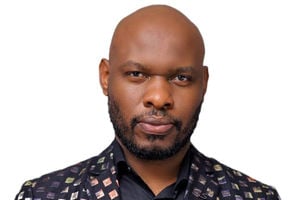Lack of career guidance hurting Busoga vocational schools, authorities say

Graduands of Busoga International Polytechnic (BIP) in Jinja City walk on the red carpet after being awarded Certificates and Diplomas during the graduation held at the institution on Friday. PHOTOs | RONALD SEEBE
What you need to know:
- Busoga Kingdom Prime Minister, Dr Joseph Muvawala, said Uganda needs more people with vocational training than university graduates of any level
Many students are not joining vocational schools because they have never received career guidance about such studies at primary and secondary levels, an official from the Petroleum Authority of Uganda has said.
The Skills Development Officer at the Petroleum Authority of Uganda, James Okwi, said the above development has limited the students’ career knowledge about vocational studies as they prepare for their future career paths
“The high unemployment levels in the country is attributed to lack of employable skills yet vocational graduates are better placed to get jobs or create them during or after completion of studies,” Okwi said on Friday during the graduation of Busoga International Polytechnic (BIP) in Jinja City.
A total of 130 students graduated, including 13 in the inaugural Offshore Petroleum Industry Training Organisation (OPITO), Engineering Programme in Oil and Gas.
He added: “This must change because during the briefing period, vocational studies are mentioned as an optional for students who have failed final exams which is wrong. Nothing is mentioned about vocational studies; teachers only talk about scoring good grades that qualifies students to join university.”
According to Okwi, teachers in primary and secondary schools lack sufficient information on the vocational education sector and its role in economic development, adding that not all parents and schools encourage students to pursue vocational courses during career guidance yet they are an important aspect of our education sector.
Jinja City Northern Division Mayor, Ayub Wamika, said the alleged poor mindset change of our society has prevented many students from embracing vocational training.
“You don't need to go to university or any institution to complete the course but need a course that will enable you to earn a living after your graduation,” Wamika said, adding that for one to make it, they need a skill that is on demand, and that people are willing to pay for.
Busoga Kingdom (Katukkiro) Prime Minister, Dr Joseph Muvawala, said Uganda needs more people with vocational training than university graduates of any level because it is easy to get a job or create one using employable skills got from vocational studies.
He added that Technical and Vocational Education and Training (TVET) is a key driver of socio-economic transformation and industrial development of any country and Uganda is no exception.

Graduands and staff of Busoga International Polytechnic (BIP) in Jinja City take a group photo after the graduation ceremony on Friday.
According to Dr Muvawala, students doing OPITO engineering training at BIP can work in the Oil and Gas sector because their certification is recognised worldwide.
The director of BIP, Ms Reham Mustafa, said parents and students don’t know the importance of vocational studies, while many students miss vocational training because they failed Mathematics and English Language at Ordinary Level.
She noted: “Some students pass Senior Four with impressive aggregates and some with distinctions in English Language and Mathematics, but when they are given interviews, they fail both subjects.
“This is making the institution underutilised with low enrolment because we receive over 700 applicants, but only 200 pass interviews yet we have the capacity to accommodate 700 students.”




